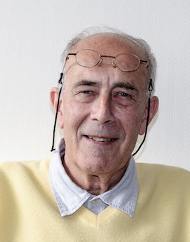Orateur
Description
We describe multi-quark clusters in quark matter within a generalized Beth-Uhlenbeck approach in a background gluon field that is coupled to the underlying chiral quark dynamics using the Polyakov-gauge and an effective potential for the traced Polyakov-loop. A higher multi-quark cluster of size n is described as a binary composite of smaller subclusters n1 and n2 (n1+n2=n) with a bound state and scattering state spectrum. For the corresponding cluster-cluster phase shifts we use two simple ansätze that capture the Mott dissociation of clusters as a function of temperature and chemical potential. We compare the simple "step-up-step-down" model that ignores continuum correlations with an improved model contains them in a generic form. In order to explain the model, we restrict ourselves here to the cases where n= 1, 2, …, 6.
A striking result is the suppression of the abundance of colored multi-quark clusters at low temperatures by the coupling to the Polyakov loop. This is understood in close analogy to the suppression of quark distributions by the same mechanism and we derive here the corresponding Polyakov-loop generalized distribution functions of n-quark clusters. With the input of the temperature (T) and chemical potential (μ) dependence of the chiral condensate from lattice QCD, we construct the QCD thermodynamics in good agreement with the data. Special emphasis is on the density and entropy density and their ratio in the T- μ plane that show the effect of multi-quark cluster formation and dissociation.
*) This work was initiated by Peter Schuck at the ECT Trento Workshop on “Light Clusters in Nuclei and Nuclear Matter: Nuclear Structure and Decay, Heavy Ion Collisions, and Astrophysics“ (2019)
